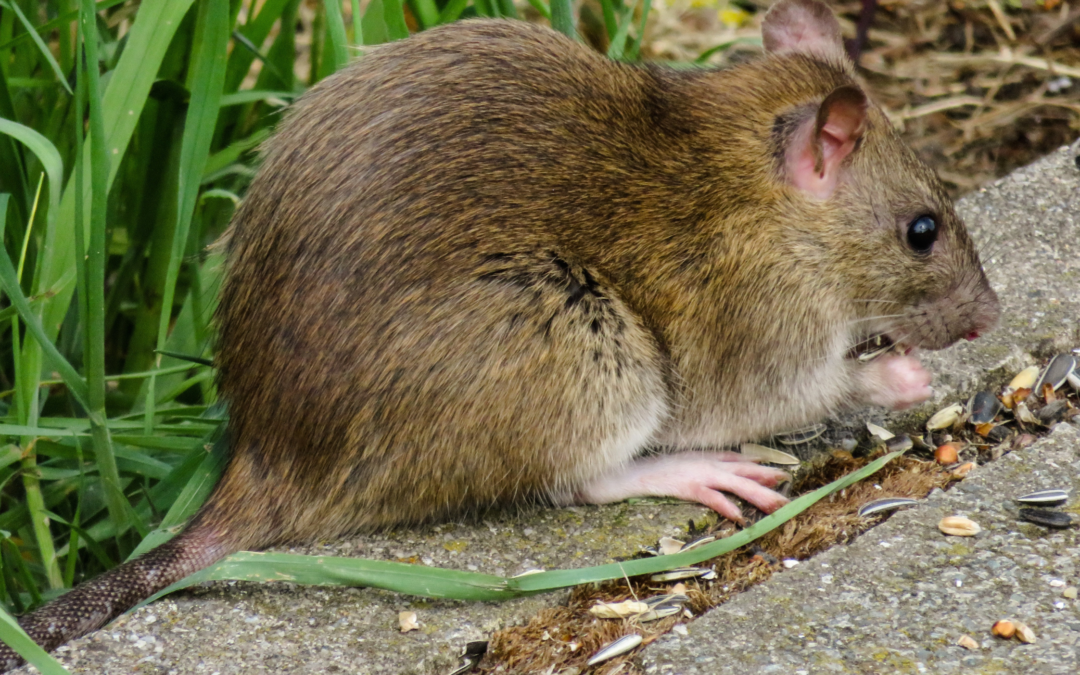Occasional Invaders, Rodents
Mice and Rat Solutions
It should be no surprise to you that America’s oldest, documented pest control company has the BEST mice and rat solutions. Commercial or residential, our pest experts have their own personal tricks on how they catch rodents and keep them out. As temperatures drop, mice begin to stir and seek indoor shelter. The house mouse (Mus musculus) is one of the most economically important rodent species in the United States. They are an incredibly adaptable creature and can survive in many different conditions if they have access to food, warmth, and shelter.
House mice consume and contaminate food meant for humans, pets, livestock, and other animals. They transmit pathogens that cause disease, such as salmonellosis, through their feces. Their fur, urine and droppings can cause various illnesses, including allergies and asthma. Additionally, mice can be infested with ticks or fleas and can bring these parasites indoors where they can affect humans or pets. Mice can also cause considerable damage to structures and property through their gnawing actions. In fact, 25% of unexplained house fires in the United States are attributed to rodents gnawing on wires.
House mice can squeeze into a hole as small as the diameter of a dime. The house mouse has been estimated to infest homes 10 to 20 times more than rodents, probably due to their small size and behavior. Telltale signs of rodent infestation include nests, droppings, fresh gnaw marks, or tracks. Call us to help you to identify weak points where mice may be gaining access to your home or to help you rid any ongoing rodent problems.
Fact or Fiction: Pest services are not needed in winter
FICTION! Indoors is where dozens of pests head in the winter. Bugs and rodents are looking to escape the harsh elements of winter just as much as us when temperatures drop so low. . Insects are cunning creatures that have adapted multiple ways to survive cold winter months.
Fact or Fiction: Pests die in the winter
FICTION! Most insect populations will dwindle and be very low during winter months. To survive, insects will overwinter in various stages, many as eggs, until temperatures begin to rise again -signaling that it’s time to wake up and emerge from their eggshell. Some insects will also undergo something called diapause, essentially hibernation, initiated when daylight hours get shorter and temperatures begin to drop. An insect in diapause uses only a fraction of their normal energy and survives on stored body fat during the entirety of winter. Another amazing feat of insects is their ability to survive freezing temperatures by producing glycerol in their bodies. The production of glycerol in insects is akin to antifreeze in a car, thus allowing insects the ability to supercool and survive extreme winter conditions.
One way insects overwinter is by hiding in tree holes, under bark and leaves, or even below the soil surface to avoid cool temperatures until the weather becomes more favorable. When these sites are not available, many insects turn to the inside of our homes for protection, where there are multiple cracks and holes for an insect to survive the cooler months.
Fact or Fiction: You can prevent pests from entering your house in the winter
FACT! Pest prevention now will help keep you protected for months to come. Insects are incredibly small and resourceful in their ability to enter homes but our pest experts have spent years learning pests habits and staying up to date with changes in their biology. Call us when the inevitable pest does enter your home to identify the intruder and help prevent any further pests from spending the winter in your home.
Think You May Have Some Invaders?
Sanitation goes a long way to prevent these winter rodent problems. Practicing these prevention tips, along with our Healthy Home Maintenance Program‘s quarterly visits will provide protection you need all year ’round, and peace of mind you deserve. Our professional crew is only a phone call or click away. Learn more about the steps we take to meet your individual needs and the skills we teach to help you maintain a happy, healthy, pest-free home

